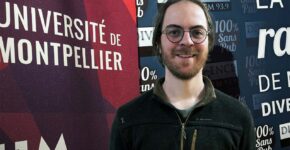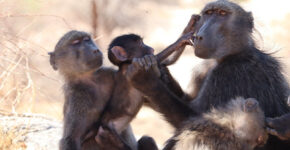Scientific culture
The dissemination of scientific culture involves the transfer of knowledge, techniques, and expertise between science and society. This is one of the missions of universities and a voluntary initiative that mobilizes the University of Montpellier and its scientific community: researchers, Professors, doctoral students, etc.
Scientific culture is brimming with actors and initiatives aimed at pushing the boundaries of knowledge. Its dissemination focuses on sharing, exchanging, experiencing, and debating ideas around scientific issues. At the University of Montpellier, this is particularly evident in:
- the dissemination of scientific knowledge to as many people as possible;
- promoting scientific and technical careers among young people;
- the development of exchanges and partnerships;
- training in scientific mediation (master's students, doctoral students).
The UM's scientific culture services coordinate dialogue between science and society through a range of events, both on the University of Montpellier campus network and beyond, for an audience of citizens, students, high school students, and schoolchildren. To this end, the teams collaborate with numerous partners: research organizations, CCSTI, associations, cultural centers, and public and private institutions.
Key actions
Science tells tales
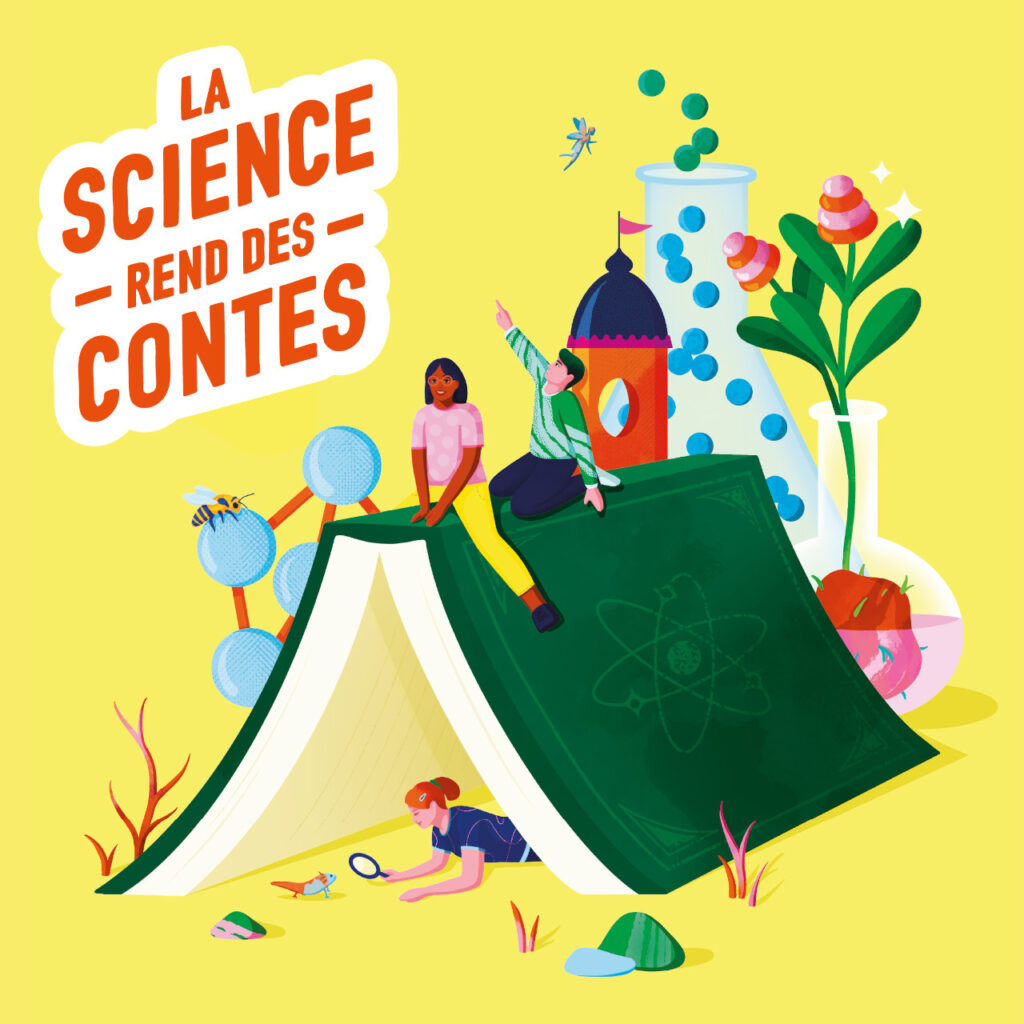
The "La science rend des contes" residency brings together three storytellers, who have been immersed since September 2025 alongside scientists from the University of Montpellier and its partner organizations, working on three main pillars: feeding, caring for, and protecting. The goal is to create one or more stories inspired by the research carried out in the research laboratories.
The public presentations will take the form of shows for children aged 6 to 11 and their parents.
The shows will also be enriched by discussions with the scientists, and you will be able to ask them all your questions!
The Science Bar: thirst for knowledge!
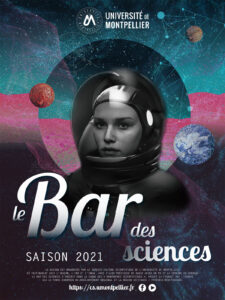
The Scientific Culture Department offers an annual season of Science Bars on topics related to science and society. The Science Bar, produced by the University of Montpellier in partnership with INRAE, INSERM, and IRD, has been offering monthly scientific culture events for several years, contributing to the dialogue between science and society. Unlike formal conferences, these debates are invitations to exchanges between specialists in a given subject and the general public.
Science Festival
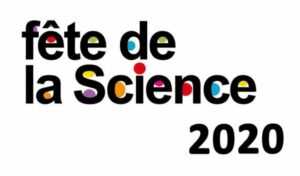
The Science Festival is a major annual event promoting scientific culture. Thanks to the involvement of stakeholders in faculties, research organizations, laboratories, associations, and more, science is showcased and brought to life through a variety of surprising and astonishing activities.
The University of Montpellier coordinates the event across the Hérault department and runs the Montpellier Science Village, located at the Faculty of Education. With a focus on exploration and discovery, the Montpellier Science Village offers a wealth of activities for young and old alike: workshops, demonstrations, experiments, games, screenings, conferences, and more. It's a wonderful opportunity to meet interesting people, share knowledge, and make discoveries that will help us better understand the world around us and imagine the future!
The highlights of the 2020 Science Village, available in digital format, can be found on the UM YouTube channel.
Exhibition: "NounOURS, from cave bears to teddy bears"

The next exhibition proposed by the Scientific Culture Department is a continuation of peluchology, an original educational and scientific outreach initiative conceived in 2010. Designed to be itinerant, it consists of museum panels, display cases, book collections, and teddy bears. It pays tribute to this noble and sacred animal, fallen god and king of stuffed animals: the bear.
Call for projects: Business-to-business relations
The I-SITE Excellence Program includes a component supporting "Science-Society Relations" initiatives, which takes the form of a call for projects open to all institutions and organizations in the consortium. It is part of a strategy to disseminate research generated in our region and its challenges, particularly to young people and schoolchildren (primary to high school), and aims to support innovative initiatives for sharing knowledge, dialogue, methods, results, challenges, and questions around scientific themes. With a budget of €50,000 over two campaigns (fall 2022 & fall 2023), it provides support for each project with funding of up to €4,000.
In 2022, the selected projects are:
Spotlight on (in)visible biodiversity: biodiversity inventoried
The project, led by Frédérique Carcaillet (Marbec), consists of three parts: the exhibition "Biodiversity Inventoried," the second part of the exhibition "Spotlight on (In)visible Biodiversity," an event centered around the screening of the documentary film "Discreet Sentinels - Community Conservation," and the provision of an educational tool to accompany high school students on their visit to the exhibition. The aim of this project is to introduce high school students to the knowledge, skills, and professions related to the study of biodiversity through concrete examples from the ISITE program of excellence community.
Multi-sensory discovery and sharing of woods and their biodiversity
The project presented by Sandrine Bardet (LMGC) and Kevin Candelier (BioWooEB) focuses on raising awareness among young people about the biodiversity of forests, trees, and wood by asking the question: How can we promote it through the services it provides to humans while preserving it? Through workshops conducted in classrooms and in the field, young students will be invited to use their senses (observing, touching, smelling, and listening) to discover and understand the plant biodiversity around them: how trees grow, why they are different, how trees produce wood, what services forests provide, and the possible uses of wood as a material. This scientific support will be provided in a class in Montpellier and a class in Kourou (French Guiana), both of which are part of Priority Education Networks, with the aim of bringing together students and teachers from these two geographical areas and getting them to work together on a joint scientific project, but with completely different natural resources and local needs.
Implementation of experimental activities related to water treatment as part of the EAU success teams
This project, led by Julie Mendret (IEM), is based on scientific mediation around water sciences. It aims to connect middle and high school students in Lozère with researchers and students from the University of Montpellier as part of the EAU success network: Encordés A l'Université (Connected at University). Through this project, the aim is to set up experimental activities related to water treatment and quality and to take on the tasks that this involves.
Workshops and mediation in chemistry for secondary education (SCHOLAR)
The project, led by Jean-Yves Winum and Jean-Sébastien Filhol (IBMM), is part of the effort to strengthen the scientific discovery workshops set up in 2022 by the IRES Physics-Chemistry group by creating new scientific outreach content for middle and high school students, including new workshop themes and related presentations. It also aims to give these workshops a research dimension by presenting the work carried out by the institutes of the Pôle Chimie Balard in the field of innovative materials, pigments, and dyes for high-tech applications and in the field of health.
Digital Guidance Support with Information Seeds (ANOGI)
This project, led by Chrysta Pelissier and Jean Moutouh (IUT de Béziers), aims to promote a digitally-assisted reflective approach that can be used by middle and high school students in Lozère as part of activities dedicated to their career guidance. Some of these learners suffer from social, gender, and socio-cultural inequalities, resulting in self-censorship or little interest in activities related to their career guidance. The innovative approach proposed is based on research in the fields of information and communication and language sciences. Its aim is to develop and disseminate an innovative career guidance pedagogy, in particular by opening up debate between learners and between learners and their teachers.


